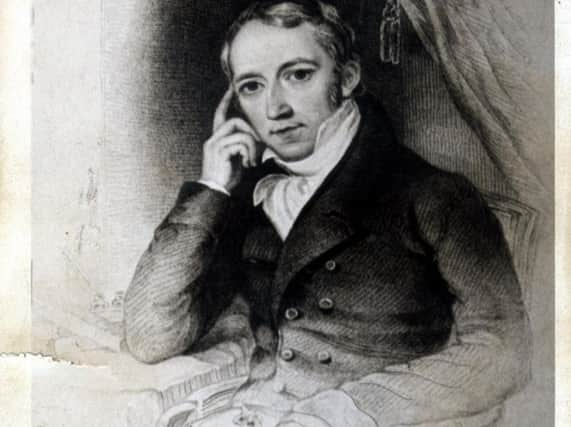Sheffield editors who stood up for city


Amid the pages of the Sheffield Register (1787-1794) and the Sheffield Iris (1794-1825) Joseph Gales and James Montgomery held their Government to account. They campaigned for fair treatment from local and national authorities and ensured that Sheffield citizens were aware of their constitutional rights and entitlements.
Writing under the close scrutiny of suspicious local authorities, both the Register and the Iris presented their most controversial material in a section referred to affectionately by readers as ‘Poetry Corner’. Reoccurring themes included the need for universal political representation and access to education, racial and religious equality and worker’s rights.
Advertisement
Hide AdAdvertisement
Hide AdAn over-arching concern was that if the Government could not legally be criticized then there remained no safeguard against tyranny. As one reader’s poem warned in April 1793, this seemed to be increasingly the case:
“We may speak (it is true) if we mind what we say; But to speak all we think, will not suit in our day.”
These lines proved prophetic, with the Register coming to an abrupt close a few months later. Charged with ‘conspiracy against the government’, Gales had to abandon the paper to move to America as a fugitive.
Fortunately, within three months the paper would be re-founded by young James Montgomery as the Sheffield Iris.
Advertisement
Hide AdAdvertisement
Hide AdAs a teenager, Montgomery had fled from Scotland intending to pursue a career in London as a poet. Instead he got stranded in Rotherham and decided to apply for a job at the Register.
As a close friend of Gales and an acolyte of the Register’s politics, Montgomery worked fast to rally funds for a new paper. The Sheffield Iris positioned itself as a continuation of the Register’s vision. For this, Montgomery was twice sent to prison for publishing allegedly treasonous material.
His second charge came for reporting that British soldiers had charged down a group of unarmed protesters in Sheffield. The night before the trial, Montgomery wrote to his close friend lamenting that it didn’t matter how strong a defence he presented, ‘the prosecution is levelled against the Iris; they are determined to crush it.’
Sadly, the persecution of Montgomery was little more than history repeating, his sentiments recalling the final words penned by his former mentor in the Sheffield Register: “It is, in these persecuting days, a sufficient crime to have printed a newspaper which has so boldly dared to doubt the infallibility of ministers, and to investigate the justice and policy of their measures.”
Advertisement
Hide AdAdvertisement
Hide AdThe poems are being published in an anthology by the University of Sheffield. A newly-edited poem is being released online each week, counting down to the anthology’s launch on May 27.
This will be marked by an event at Bank Street Arts titled Sheffield: City of Protest.
Go to www.printprotestpoetry.group.shef.ac.uk and to book for the event, go to www.eventbrite.co.uk/e/sheffield-city-of-protest-tickets-24426885472.